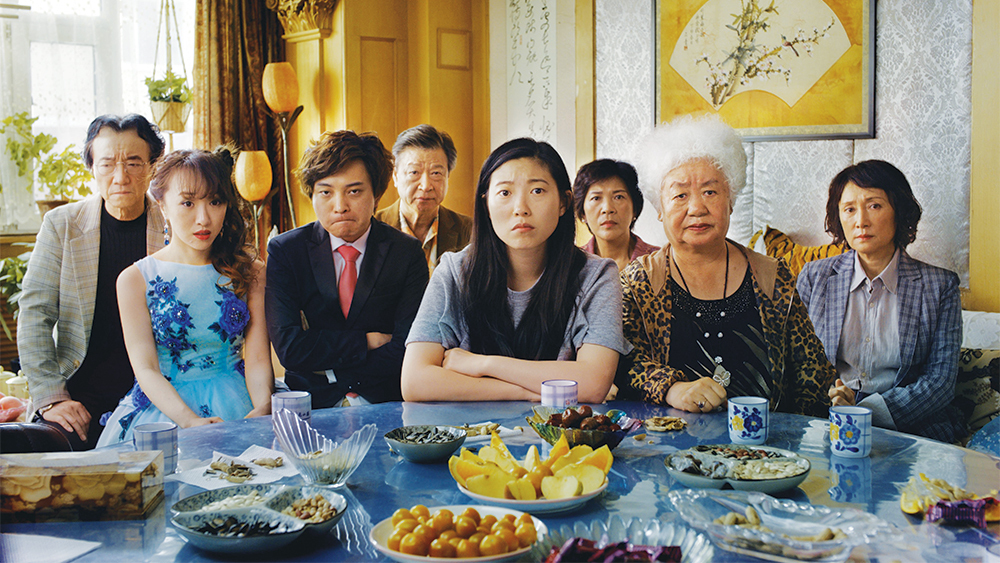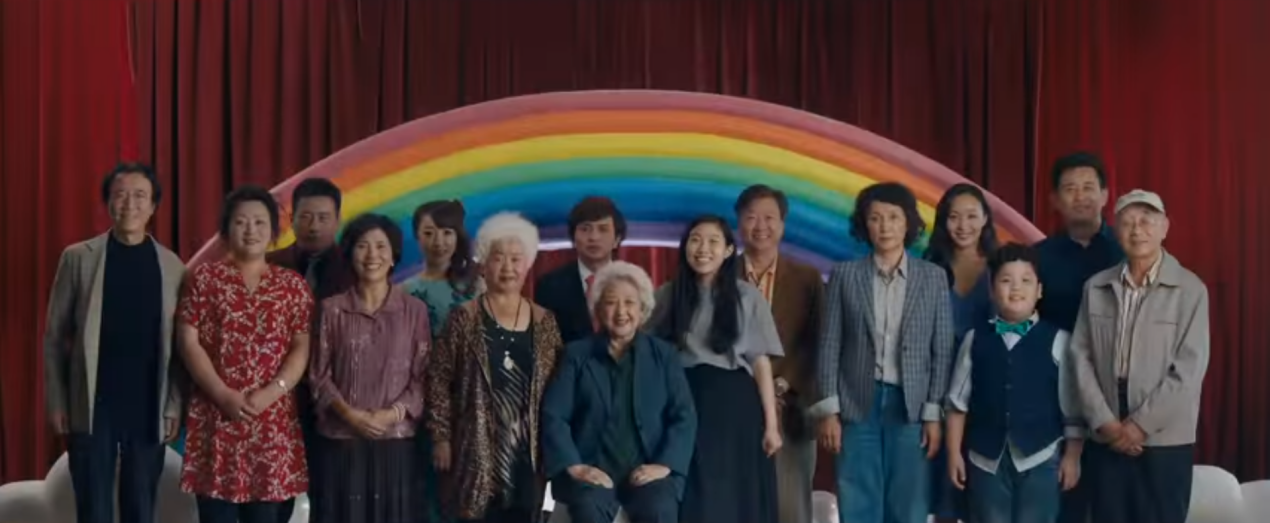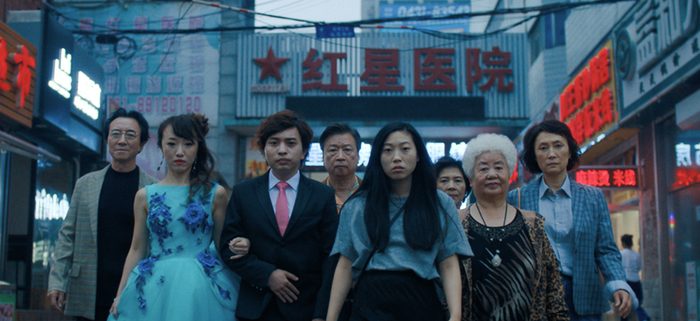What We're Watching - Lulu Wang's "The Farewell"
Andrew K. Meyer // Co-Founder, StoneStreet Cinema
We’re halfway through the year and we’ve already been blessed with masterpieces like The Last Black Man in San Francisco, Woman at War, Booksmart and Climax. And with the recently released line-ups for the upcoming Venice and Toronto Film Festivals, it feels very much like it’s going to be a strong 2019.
The Farewell is the proof, and you can locate it in the pudding. In its opening weekend, it played in four theaters and broke the 2019 record for per-theater average with an estimated $88,916- topping Avengers: Endgame, which averaged $76,601 per theater on its opening weekend. And sure, Avengers played in 4,658 more theaters, but it still goes to show that even the “cinematic event of the century” couldn’t pack in all of its theaters like this “little-engine-that-could” did. Today, after being released nationwide August 2nd, it stands at #11 in the box office with an estimated domestic total of $10,201,644. The people are coming through for this movie.
What may very well be my favorite movie of 2019, The Farewell has turned out to be one of those sticky ones that you can’t shake off. All the time I think about it, read about it, listen about it and talk about it. Now, I’m gonna write about it.
Clockwise from Top: Diana Lin (“Jian”), Tzi Ma (“Haiyan”). Lulu Wang (Writer/Director), and Awkwafina (“Billi”).
In April of 2016, Lulu Wang appeared on an episode of “This American Life” and told an incredible true story that occurred two years previously. Her grandmother (or “Nai Nai”) was diagnosed with stage four lung cancer, and everyone in her extended family was informed- that is, everyone except Nai Nai- a decision that is actually quite common among traditional Chinese families. She was given roughly three months to live and with family spread throughout China, Japan and New York, Wang’s father devised a plan to stage a wedding for her cousin as an extravagant excuse to bring the whole family together to see their Nai Nai one last time.
Lulu Wang is a filmmaker, and she brought her story to NPR after being unable to persuade both American and Chinese studios to fund her project (executives from both sides of the globe suggested she needed “a white guy” in her movie). Once the story aired, she was individually contacted by producer Chris Weitz and Peter Saraf of Big Beach. They swiftly hopped on board, wanting nothing less than for Wang to have full creative control over her vision and its execution. It really shows.
The Farewell gets absolutely everything right, it’s one of those rare gems where every production department is clearly working at the top of their game. Wang is such a personable and visionary director, her rhythm is note-perfect and she won’t lose your attention for a second. It’s gorgeous too, every frame shot by cinematographer Anna Franquesa Solano is so beautifully organized, with so many wonderfully whimsical frames in which she effortlessly fits the protagonist’s entire extensive family. Alex Weston’s score fits the film’s hodgepodge of tones and genres so impressively, it settles and unsettles exactly as it needs to, and his career is only getting started.
Every single actor in this film deserves every single award. I mean it.
Awkwafina plays Billi, an Asian-American New York artist who acts as a surrogate for Lulu Wang in depicting her deeply personal story. To be completely clear, Awkwafina is a FORCE, one who we must reckon with. If she doesn’t get an Oscar nomination, I’ll eat my hat (out of anger, more than self-assurance).
Most of the other actors are relatively unfamiliar faces, but after The Farewell, you’ll never forget them. Tzi Ma and Diana Lin as Billi’s parents display their emotional restraint with such graceful nuance and authenticity. Zhao Shuzhen as Nai Nai will make you laugh and cry, most often at the exact same time. She’s the most refreshing matriarch I’ve seen on screen in a long, long time- she amuses and inspires as the perfect core to this perfect film. Then you got your uncles, aunts, cousins, family-friends, etc.- each and every one utterly and specifically human. Lu Hong plays “Little Nai Nai”, Nai Nai’s younger sister, both in the film and in real life. Hong’s dog, Ellen, plays herself as well.
Zhao Shuzhen as “Nai Nai”.
The care taken to the design of this production is incomparably precise. Stephanie Chan wrote a great article on Apartment Therapy interviewing production designer Yong Ok Lee on all the various challenges of filming in Changchun, China (where Wang’s Nai Nai and family continue to reside). The details of her design are steeped richly in history and culture- the dining room table in the living room, the furnishing styles of the 70’s & 80’s from both China & Russia, the “harmonic mismatch of colors like pink, purple and yellow…”
“‘Our main concept was to show Changchun, China through Billi’s eyes — how it looked unfamiliar and ugly at first, but slowly morphed into a warm familiar norm,’” explains Lee.”
That “warm familiar norm” certainly creeps in on you, so much so that by the time we arrive to the anticipated wedding, you’ll be more than eager to hop right into the screen. If not for the family, then at least for the food. I have never seen a more mesmerizing depiction of food in the history of cinema. It might not even be Solano’s frames or Lee’s design, it may very well just be the food. I find absolutely no enjoyment out of watching the Food Network, but I can stare at Wang’s images of food for breakfast, lunch AND dinner.
There are plenty of twists in this crafty narrative that took me by serious surprise. The final moment- the “what happens after”- drew a dumb dramatic gasp out of me, followed by a lot of big boy tears. I want to talk so much about it, but having personally not known the ending going in, I think it’s more rewarding to try it the same way.
I saw The Farewell in a nearly sold-out theater at AMC Lincoln Square in Manhattan (last week I saw that Ruth Bader Ginsburg saw it there as well. She’s just like you and me!). The large and diverse audience seemed to collectively love it as much as I did. Everyone was laughing and everyone was crying- all completely captivated, despite that more than 70% of this film is in Mandarin. Subtitles clearly do not limit an audience. Foreign films are for everyone.
Awkwafina (“Billi”) & Zhao Shuzhen (“Nai Nai”) practicing tai chi.
All the friends and peers I’ve talked to who’ve seen this movie felt a deep personal connection to Billi and her perspective of her parents, her grandmother, her culture- even if they’ve lived entirely other-worldly lives. The Farewell concerns our individuality’s complex relationship with our heritage. It concerns all of us.
The Farewell opened in NY and LA on July 12 and recently expanded nationwide on August 2, now playing everywhere. You will love it.



